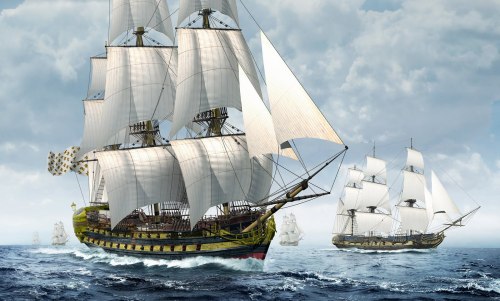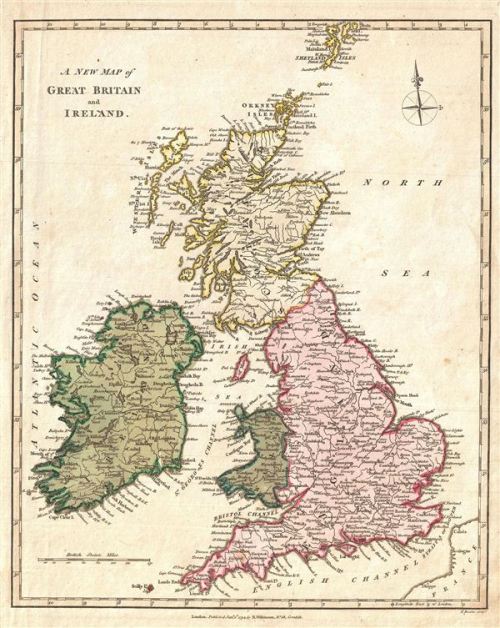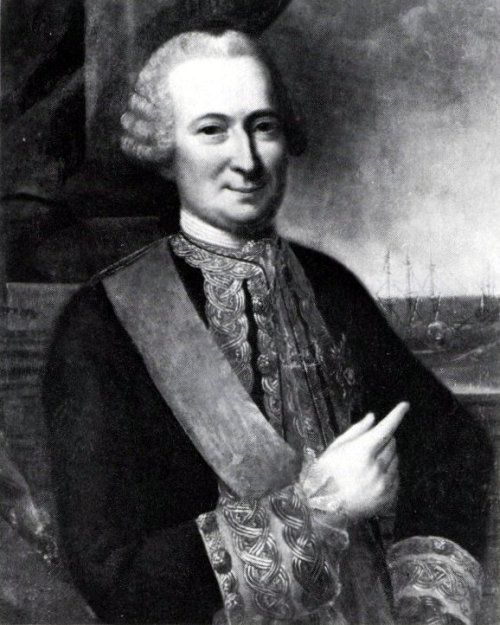peashooter85:The Revolutionary War Invasion of Britain —- The Armada of 1779.When France became alli
peashooter85:The Revolutionary War Invasion of Britain —- The Armada of 1779.When France became allies with the American colonies during the Revolutionary War, it sparked a struggle between Britain and France all over the world. In the Caribbean, in Europe, and in India French and British forces battled over control of colonies and key territories. Added to the mix were the Spanish, who became informal allies with the French later that same year, and conducted various raids around the Gulf Coast and Louisiana Territory.In the spring of 1779 the two allied powers planned an ambitious military campaign to destroy the British Empire. Because British forces were stretched thin due to the war, there were few troops stationed in Britain and only 40 Royal Navy ships guarding the English Channel. The plan was for a combined French/Spanish armada to destroy the British fleet. This would pave the way for an unopposed invasion of Britain. The plan was for the French and Spanish fleet to meet off the coast of Spain. Once the armada destroyed the British fleet, a force of 40,000 French troops would invade from Northern France. In the meantime a small squadron of American ships, led by the famous John Paul Jones conducted raids in Northern England, Scotland, and Ireland with the intention of drawing British troops away from the invasion point.On the 3rd of June a French fleet of 30 warships led by Admiral d’Orvilliers set off for Spain. The expedition was fraught with failure from the start, as the French set off with only half of their supplies as there was a pervading fear that the British had discovered their plans and were going to blockade the fleet. Once off the coast of Spain the French waited for the Spanish fleet. As they waited they continued to consume more and more of their supplies. The Spanish were late, very late, in fact they were almost two months late. By the time the Spanish arrived with another 36 ships on July 25th, the French were suffering from scurvy, typhus, and smallpox. When the Franco-Spanish fleet entered the English Channel on the 31st of July, the entire fleet was a diseased mess.When d’Orvilliers and his armada entered the Channel he was surprised to find that the British Fleet was absent, instead conducting a patrol off the Isles of Scilly. d’Orvilliers received orders in mid August to continue with the invasion without destroying the British fleet, a move he considered risky since the British could show at any moment, destroying the helpless troop transports or blockading the landing sites, trapping French troops on the English coast. d’Orvilliers sent a message asking the French government to reconsider. While waiting for a response a large easterly wind scattered the fleet, driving it out of the Channel. In an incredible act of good fortune, the armada found the British fleet. d’Orvilliers intended to immediately engage and destroy the British, but it took days for the armada to rally and re-organize. In the meantime the British fleet nimbly sailed passes the confused and disheveled armada, sailing back into the Channel. The British new what was up, and knew that they were the ultimate objective of the armada. Rather than engaging in battle, the British fleet slipped by the armada. By then the armada was suffering heavy casualties from sickness and malnutrition. Without even firing a shot, the armada had lost 8,000 sailors, and 50% to 60% of the survivors were incapacitated. Worse yet was scurvy, a sailor’s worst nightmare. A disease caused by vitamin c deficiency, it led to tooth loss, hair loss, open sores, fever, and death.By September the armada was in no condition to do battle with anyone. In addition there was fears that the invasion would drag on into the cold months of autumn and winter. The invasion was called off. The armada did have one major effect; it freaked out the British, who would fear the possibility of invasion for the rest of the war. In response, the British Army recalled many of its troops from colonial outposts, including in the American colonies. No other invasion of Britain would be attempted by the French or Spanish during the American Revolution. -- source link
Tumblr Blog : peashooter85.tumblr.com


